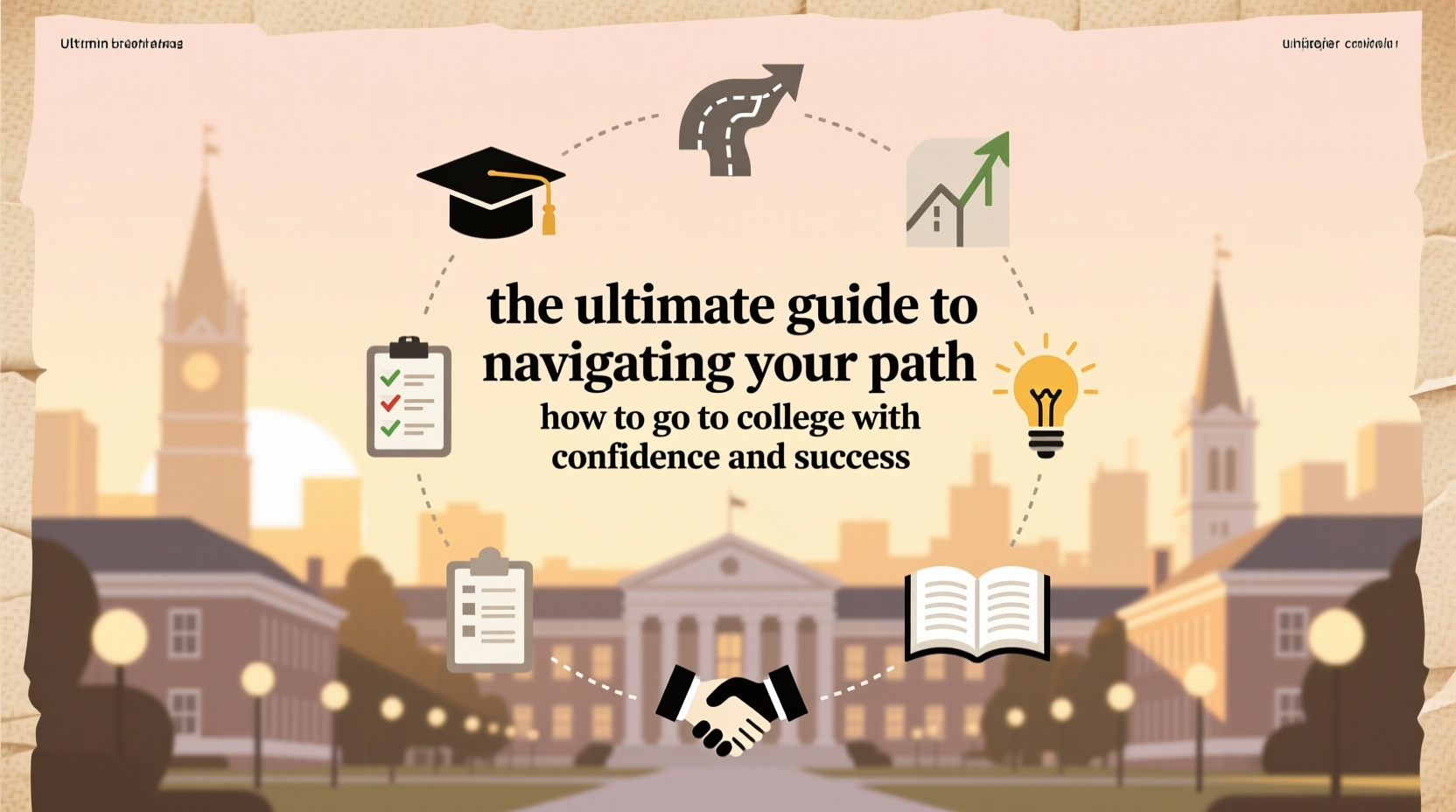Entering college is more than just a change of environment—it’s a transformation of identity, responsibility, and purpose. For many, it’s the first time they’re fully accountable for their time, choices, and academic performance. While the transition can be overwhelming, it doesn’t have to be. With the right mindset, tools, and support systems, students can not only survive but thrive. This guide provides actionable strategies, real-world examples, and expert-backed advice to help you build confidence, manage challenges, and succeed academically and personally throughout your college journey.
1. Lay the Foundation Before You Arrive

Success in college often begins before orientation week. Preparation during the summer or gap between high school and college sets the tone for your entire experience. Take time to research your campus resources—academic advising, tutoring centers, mental health services, and career development offices. Familiarize yourself with your course catalog and degree requirements so you understand what lies ahead.
Equally important is developing soft skills like time management, self-advocacy, and emotional regulation. These are rarely taught formally but are essential for long-term success. Consider reading books on productivity or enrolling in a free online course about study skills or emotional intelligence.
Step-by-Step Timeline: Preparing for Your First Semester
- 3–4 months before: Attend orientation sessions, finalize housing, and connect with roommates.
- 2 months before: Review syllabi if available, purchase textbooks early, and set up a digital planner.
- 1 month before: Begin adjusting your sleep schedule to match class times.
- 1 week before: Pack essentials, including academic supplies, medications, and comfort items from home.
- Arrival week: Attend all orientation events and map out key locations—library, dining halls, health center.
2. Master Time Management and Academic Planning
One of the most common struggles for new college students is balancing coursework, extracurriculars, part-time jobs, and social life. Unlike high school, where structure is imposed, college requires self-direction. Without a clear system, even motivated students can fall behind.
Start by using a digital calendar (Google Calendar, Outlook) to block out class times, study sessions, work hours, and downtime. Treat study blocks as non-negotiable appointments. Break large assignments into smaller tasks with deadlines to avoid last-minute stress.
| Schedule Type | Best For | Recommended Tools |
|---|---|---|
| Digital Calendar | Real-time updates, reminders, shared schedules | Google Calendar, Apple Calendar |
| Paper Planner | Tactile learners, minimal distractions | Bullet journal, weekly planner notebook |
| Task Manager Apps | Project tracking, collaboration | Todoist, Notion, Trello |
“Students who plan their week every Sunday night are 68% more likely to maintain a GPA above 3.5.” — Dr. Lisa Tran, Educational Psychologist, University of Michigan
3. Build a Support Network That Works
Confidence isn’t built in isolation. It grows through connection—with professors, advisors, peers, and mentors. Don’t wait until you're struggling to seek help. Introduce yourself to your academic advisor early and schedule regular check-ins. Visit professors during office hours, even if just to discuss course material. This builds rapport and makes it easier to ask for extensions or recommendation letters later.
Join student organizations aligned with your interests or major. Research shows that students involved in at least one campus group report higher levels of satisfaction and lower rates of anxiety. If you're unsure where to start, attend club fairs or browse your university’s student activities portal.
Mini Case Study: From Overwhelmed to Empowered
Jamal, a first-generation college student at a large state university, felt lost during his first month. He skipped office hours out of fear of seeming “behind,” and avoided clubs because he didn’t know anyone. By week six, his grades were slipping. After meeting with a counselor at the student success center, he committed to small actions: emailing one professor each week, attending two club meetings, and joining a first-year mentorship program. Within a month, he had formed a study group, secured a tutoring session, and began feeling a sense of belonging. By semester’s end, his GPA improved from 2.7 to 3.4.
4. Develop Resilience Through Realistic Expectations
Many students enter college believing they must excel in every area immediately. The pressure to \"have it all figured out\" leads to burnout and imposter syndrome. Instead, adopt a growth mindset: view setbacks as feedback, not failure.
If you bomb a midterm, analyze what went wrong—was it poor preparation, test anxiety, or misunderstanding the material? Then adjust accordingly. Seek tutoring, practice active recall techniques, or join a review session. Progress is rarely linear, and resilience comes from consistent effort, not perfection.
- Accept that some classes will be harder than others.
- It's okay to drop or withdraw from a course if it jeopardizes your mental health or overall standing.
- Ask for help early—your peers, professors, and counselors want you to succeed.
Checklist: Building Confidence Throughout the Semester
- ✅ Attend all classes consistently
- ✅ Schedule weekly planning time
- ✅ Connect with at least one professor or TA
- ✅ Join one campus organization
- ✅ Use campus resources (tutoring, writing center, counseling)
- ✅ Reflect monthly on progress and challenges
- ✅ Maintain physical and mental well-being
5. Prioritize Well-Being to Sustain Long-Term Success
No academic achievement is worth sacrificing your health. Chronic sleep deprivation, poor nutrition, and unchecked stress impair cognitive function and weaken immunity. Make self-care non-negotiable. Aim for 7–8 hours of sleep, eat balanced meals, and incorporate movement—even short walks between classes boost focus and mood.
If you’re feeling persistently anxious, isolated, or overwhelmed, reach out to your campus counseling center. Many offer free, confidential sessions. Talking to a professional isn’t a sign of weakness; it’s a strategic move toward clarity and stability.
“Students who prioritize well-being don’t fall behind—they stay ahead because they’re operating at full capacity.” — Dr. Naomi Perez, Director of Campus Mental Health, Ohio State University
Frequently Asked Questions
What should I do if I’m failing a class?
First, meet with the professor to understand your standing and options. Ask about extra credit, retakes, or revision opportunities. Simultaneously, contact academic support services for tutoring or study strategies. If recovery isn’t possible, consider whether withdrawing is the wiser choice to protect your GPA and mental health.
How can I make friends in college?
Start by showing up—attend dorm events, study groups, or department mixers. Be open to conversations, even brief ones. Shared experiences build bonds. Consistency matters more than charisma: seeing the same people repeatedly increases the likelihood of friendship. Don’t be discouraged if connections take time.
Is it normal to feel homesick?
Yes, especially in the first few weeks. Homesickness affects over 60% of first-year students. Stay connected with family through scheduled calls, but also immerse yourself in campus life. The more engaged you are, the faster those feelings typically subside.
Conclusion: Your Path, Your Power
Going to college with confidence and success isn’t about being the smartest or most outgoing person in the room. It’s about showing up consistently, asking questions, learning from missteps, and building a life that aligns with your goals. You don’t need to have everything figured out—just the courage to keep moving forward.
Your college journey is uniquely yours. Use the tools, resources, and relationships available to you. Embrace challenges as part of growth. And remember: confidence isn’t the absence of doubt, but the decision to act despite it.









 浙公网安备
33010002000092号
浙公网安备
33010002000092号 浙B2-20120091-4
浙B2-20120091-4
Comments
No comments yet. Why don't you start the discussion?